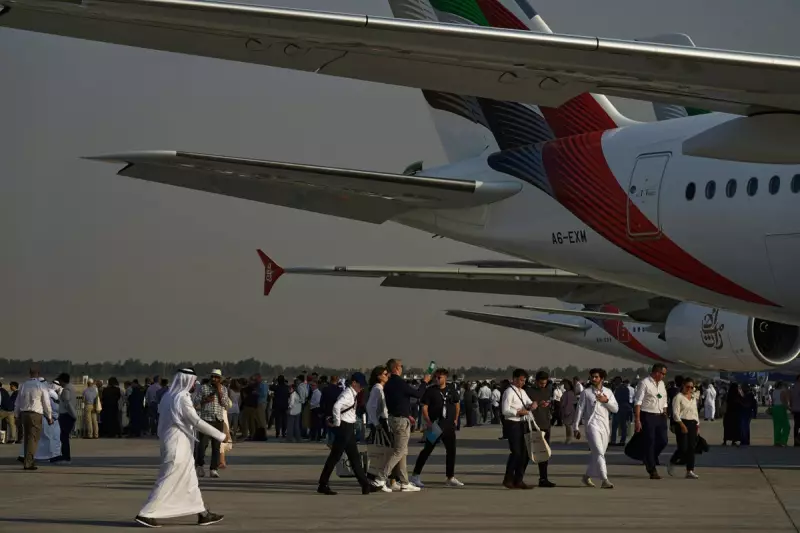
Dubai has announced staggering new passenger numbers for its main airport, shattering previous records and underlining the urgent need for its multi-billion dollar new airport project. The news broke during the biennial Dubai Air Show, where major aircraft deals are already being signed.
Record-Breaking Passenger Numbers
Officials revealed on Wednesday that Dubai International Airport (DXB) has welcomed a colossal 93.8 million passengers this year. This figure solidifies DXB's status as the world's busiest airport for international travel and represents a significant jump from the 92.3 million passengers recorded last year.
Paul Griffiths, the CEO of Dubai Airports, stated that these results highlight the robust strength of the city's aviation and tourism sectors. He emphasised that this growth reinforces the critical importance of the next phase of development for the emirate's air travel infrastructure.
The $35 Billion Vision for Al Maktoum Airport
This rapid expansion is the driving force behind the ambitious $35 billion project to construct a massive new airport at Al Maktoum International Airport (DWC). The planned facility, located at Dubai World Central, will feature five runways and is set to become the new central hub for the city's airport operations.
The vision for DWC extends far beyond simply increasing capacity. Griffiths described it as a complete reimagining and evolution of the entire passenger travel experience. The move will also trigger a major real estate expansion in the surrounding area, situated about 45 kilometres (28 miles) from the current DXB.
Air Show Orders and Future Growth
The announcement comes as the city-state's second airport hosts the Dubai Air Show. The event has already witnessed substantial aircraft orders from the long-haul carrier Emirates and its sister airline FlyDubai.
These new purchases are strategically planned to fuel a significant expansion of routes for the two state-owned airlines, further cementing Dubai's pivotal role as a global aviation hub connecting East and West. This growth, however, brings its own challenges. The city is now grappling with increasing traffic congestion and rising living costs, which affect both its Emirati citizens and the foreign residents who form the backbone of its economy.




